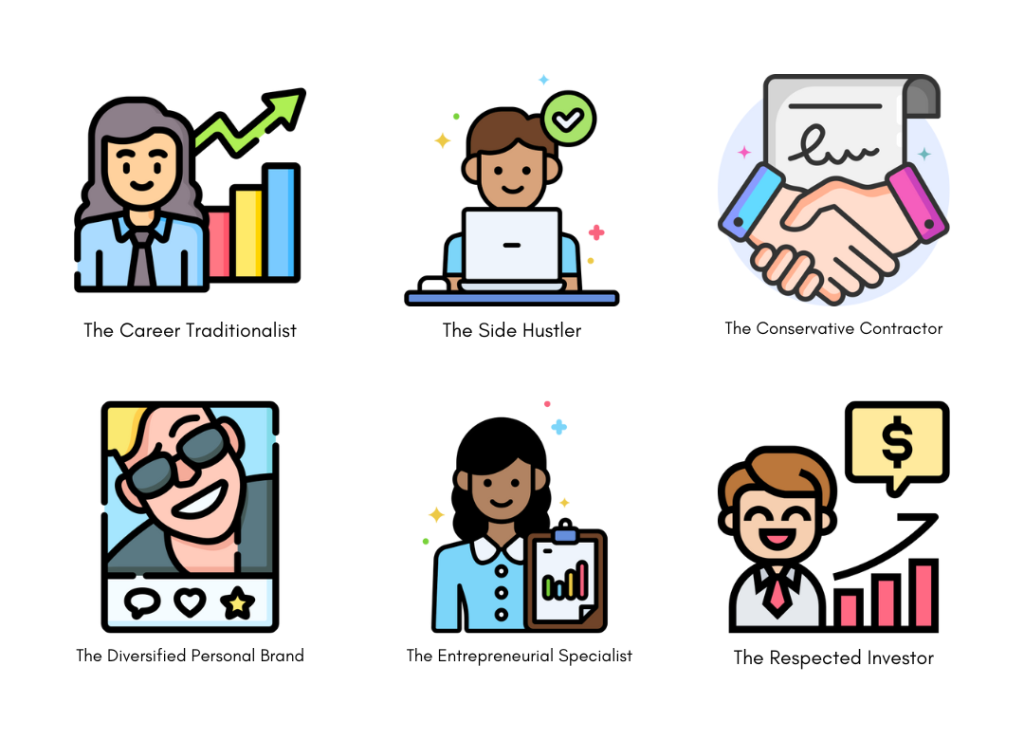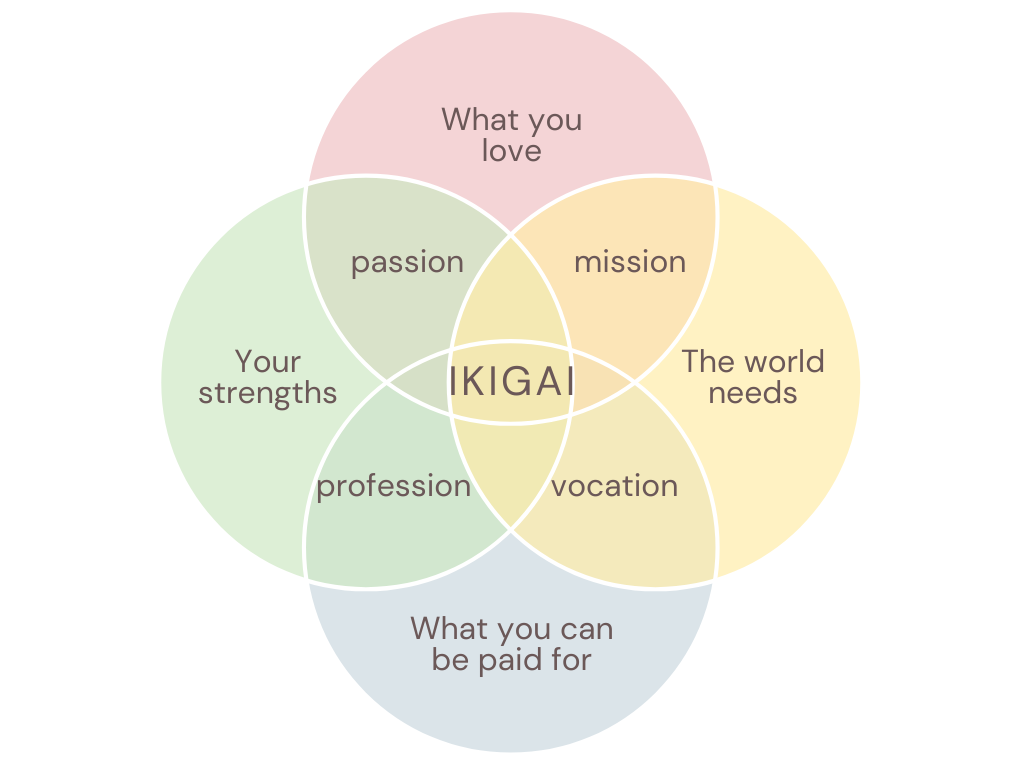Contractors! You need to build a Portfolio Career
Today I’m going to be talking about a portfolio career and how you can start one. Whether you’re a contractor or a permanent employee, this will be relevant to you.
Portfolio careers are becoming more important due to some of the following factors:
- The rise in AI and automation
- Toxic work cultures and poor leadership
- The Great Resignation
- An increasing gig economy
- The cost of living crisis
- A need for organisations to spend less overtime with contractors
This is not a full list of factors but gives you a clear idea of what it is important.
The Henley Business School predicts that 50% of all professionals will have a portfolio career. It is becoming the norm, and pigeonholing yourself in one niche may be risky business.
This risk stems from the lack of stability in any job, and a lack of income due to rising costs. This of course affects your mental health and wellbeing. A portfolio career allows you to set your own course, doing thins that align to you.
With this introduction in mind, let’s get into the meat of the content.
You already have a Portfolio Career
Whether you see it this way or not, you already have a portfolio career. It is an amalgamation of all the different roles you play that help you generate income, even if that is one thing. In this newsletter I will cover some of the following subtopics:
- What is a Portfolio Career?
- The benefits of this career option
- How to begin building one
So with that said, let’s get started!
What is a Portfolio Career?
The term career portfolio was originally coined by philosopher and organizational behaviour expert Charles Handy in the 1990s (Castrillo, C. (2021) Why you should build a career portfolio not a career path, Harvard Business Review).
Think of a portfolio career as a shift in mindset. Rather than pursuing a career, you are creating one. It’s based on lifestyle design i.e. how you want to live your life. This is influenced by:
- Income goals
- Curiosities & Interests
- Flexible living
- Passion projects
- Expertise
According to Barbara Sher, best-selling author of “Refuse to choose”, there are certain types of people attracted to portfolio careers, which she calls “Scanners”. They have intense curiosity about a multitude of interests. Psychology calls these people Multipotentialites. These people have strong intellectual or artistic curiosity and excel in two or more fields.
Portfolio careers fall into many categories. Here are some archetypes:

- The career traditionalist: An individual who is pursuing a specific career path. This person aims to climb the career ladder. Management Consultants also fit within this sphere.
- The side hustler: A person who sells a product or service on the side of their main job. They may want to be a full fledge entrepreneur or possibly fell into it. This is usually at the point after they have learned a new skill or trade. They could also be so experienced or skilled at their job that they created demand from those who want help from them.
- The conservative contractor: They are doing project based work for a fixed period of time. They usually get paid an hourly or day rate. They usually have specific industry knowledge, skills or experience. If they get enough work, they usually get paid handsomely. The non-executive director, advisor, parish councillor and Trustee also fall into this category.
- The diversified personal brand: This person is a solopreneur working on many different projects. They could be doing coaching, consulting, paid courses, and speaking engagements. They may also be an author, work as a non-executive director once a month, and be founder of a start-up. Systems and organisation are ultra key for this person. However, they have a unique purpose wrapped up in many things. Millennials use the word “Multifaceted” to describe this approach.
- The entrepreneurial specialist: This is an expert who is good at what they do. They’re so good they sell-out on high ticket items regularly. They are known in the industry for their work, and it is undisputed. Interestingly enough, they may get a little bit of hate due to their contrarian views.
- The respected investor: This person has been around the block. They get paid well-to-do whatever they are called to do. Their experience speaks for itself. They typically invest in people and businesses. They may also educate and do speaking engagements.
Hopefully these 6 categories give you an idea of the type of portfolio careerists that exist. Which category do you fall into?
The benefits of having a career portfolio

As you can see, there are different types of portfolio careerists. But why have the hassle of taking on so much work?
- People are fed up with the lack of opportunities that current organisations provide
- People want more to look forward to and are creating their own opportunities
- People want to design their own lives in a way that makes sense to them
- And finally, people want to make enough money to gain a sense of freedom.
The rat-race is killing people, mentally and physically, hence this big movement. ‘The Freelance Project and Gig Economies of the 21st Century’ study found that the average portfolio employee earned £74,000 per year. This is of course is more than double the average £30k the Brit earns each year.
Here are some pros to consider:
- If done properly, you can get a greater work-life balance
- You are able to focus on things that interest you or light you up
- Your network naturally expands, creating more opportunity
- The income you make could exponentially increase
- There are a lot more skills, knowledge and expertise you develop
- You are in control of your future
- You can work completely by yourself if you choose to.
Cons could include:
- Work-life balance could easily be a myth
- Your focus could easily be scattered
- If you take on too much work, it can be overwhelming
- Your income may be very unpredictable
- Sometimes it’s hard to start due to lack of market demand, knowledge and expertise
- Some people prefer to be in less control and want to be told what to do
- It may be a lonely road
Based on the above, what seems appealing to you? Whatever camp you sit in, consider it carefully.
How to begin building a portfolio career

This is a loaded section. It isn’t a straight forward answer, however I would like to give you some things to consider. As I mentioned before, a portfolio career is a mindset. Think less about pursuing a traditional career path and more about creating one. Even if you are in a role such as medicine, engineering or architecture, there are plenty of people who create a portfolio career.
If you are not in a traditional career, and you have the ability to plan your finances, I would encourage you to try contracting. I say this because it will force you to survive and get comfortable with the uncertainty of the industry. This is all while getting paid handsomely assuming you get a contract. Transitioning from an inside IR35 set up to an outside IR35 set up or freelance one is the road map. You may even want to find contracts with the government and make the big bucks.
If this scares you, then consider doing some of the following:
- Sell someone else’s products and services
- Sell your own products and services
How do you do this? Here are some of the following ways:
- If you are selling someone else’s products and services, this can be done via affiliate marketing or network marketing. Affiliate marketing requires you to sign up online, where you’d be given a link that allows you to make a commission. This commission can range anywhere between 1-70%. Network marketing has had a bad wrap; however, it is the breeding ground for some great entrepreneurs. This is because people realise what they could have in life. It teaches you sales, leadership, negotiation, and marketing. Plus you start to build an audience
- You can also sell your own products and services, but this would assume you are an expert of some kind. So there is a bit of work that needs to be done.
Both these things require you to have an audience of some sort you can engage with. My advice here is to try to find your ikigai. This is the intersection between:
- What you love
- What the world needs
- What you can be paid for
- What you are good at

The easiest way to look at this is to think back to what you needed help with 3 years ago. Here are some questions to consider:
- How did you overcome this journey?
- Can you help people make money, save money, save time or think radically differently?
- What message (or messages) do you want the world to know about?
There is this argument about whether you should be super niche or follow your curiosities. They are both right, and it comes down to your character. Ultimately, the market will speak to what excites them.
Whether you have chosen a niche and target market to serve, or whether you are following your curiosities, share your learnings on socials.
Develop a system that shares your premium thoughts weekly, and distributes them on social media. Your premium thoughts can be shared in a newsletter, blog post, YouTube video or podcast. These thoughts can also be rehashed on social media. This could be on places like LinkedIn, Instagram, Twitter or YouTube shorts.
The more you share your message, the more the following will happen:
- You will begin to organise your thoughts into frameworks and principles
- You will get people resonating with your content and asking you for help
- You will get opportunities to do speaking engagements as an expert
It is a bit of a learning curve and there are fundamental skills you will need to learn like marketing, copywriting and public speaking. There are many tools that can help you with these skills.
If you are creative enough, you can set up your online presence for free. A website does set the tone, but it’s not entirely necessary. I would say a good LinkedIn presence is more important.
It’s also always a good idea to connect with people. Offline and online. Attend events and speak to people. Ask questions about them, and be comfortable talking about you and your developments. If there are opportunities to collaborate (even for free), do it. It’ll give you the confidence to try more things.
This path will eventually give you stronger ideas of how you want to navigate. Sometimes, the easiest way to see it is to position yourself as a coach, who has a message to share via courses and social media.
Furthermore, if you have the money and want a more conservative approach, you can invest in people and businesses. This can be done alongside the above or in isolation. Investing is a highly respected field when done correctly. I would still urge you to share your learnings, teachings and results.
You can invest in multiple things such as index funds, stock investing, property or startups. There are also quirkier and newer endeavours such as art, NFTs and crypto, but will leave that for you to research and decide.
As you can see there are many options and hopefully, this has given you some insights into this world.
The key takeaways are:
- A Portfolio career is a mindset and a way of life. Rather than pursuing one, you are creating one. There are 6 archetypes.
- There are many benefits to having this type of career such as work-life balance, increased income and greater wellbeing. But they can come with disbenefits.
- Building a portfolio career requires you to curiously follow your ikigai. This involves learning and sharing information to people who will be interested in it.
Building a portfolio career is a way of life. It is, and will be, the new way to work. Leaning into this new paradigm, I believe will do more good than bad. Wishing you all the best on this journey. Check out some of my products and services below to see if they can help in any way.
- Secure the Job: The step-by-step course that unveils systems, strategies and success when it comes to progressing your job and applying for new roles
- The Independent Consultant UK: A guide to becoming a contractor in the UK. This is a step-by-step walkthrough of my experiences, hosting exclusive information to help you transition into the space of contracting.
- Book a call: Let’s have a chat to focus on your life areas and where you can the biggest impact. If it makes sense, we can progress towards procuring coaching or mentoring.
Build your portfolio career using systems intelligence & positive psychology.
Join other subscribers who get 1 practical tip every Sunday afternoon.
By entering your name and email address you agree to receive content and promotional offers centred around personal and professional development from Michael Tabirade. You can unsubscribe whenever you want to.








2 Comments
Comments are closed.